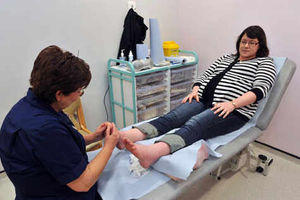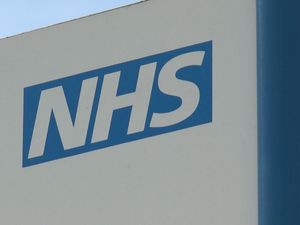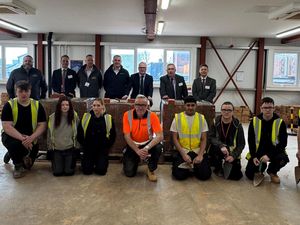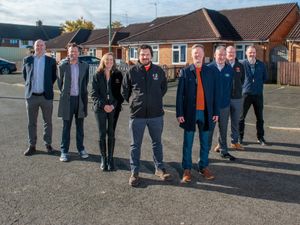Hands-on method to give baby a head start
Long walks, spicy curries and marching up and down stairs - we have all heard the old wives' tales for triggering an overdue labour.

Long walks, spicy curries and marching up and down stairs - we have all heard the old wives' tales for triggering an overdue labour.
But midwives and mothers-to-be in Walsall have found an alternative, and altogether more relaxing, way to bring on labour.
The secret, discovered by experts at Walsall Manor Hospital, is through pressure points in the feet. The maternity unit at the Pleck Road hospital undertook a study of 100 overdue women, offering some of them one free reflexology treatment on their feet.
It discovered that more women went into labour sooner and needing less pain relief than those without reflexology, which involves applying pressure to various points on the hands and feet through specific thumb and finger techniques.
The research was conducted by a team led by supervisor of midwives Lin Gostling and is set to been the first of its kind published since 1989, opening the door for more funding to carry out more extensive research on the subject.
The team included midwives Leanne York, Caroline Ranford and Anna Yepes, who were already qualified reflexologists, and consultant Sushma Sharma.
The results of their study show that, overall, the length of the first stage of labour was four hours shorter than of those in the control group of women who had not had reflexology and that the second stage of labour, when the woman starts to push, was 21 minutes shorter.
They also found that fewer women in the reflexology group needed strong pain relief during labour.
Donna Waddison, aged 36, had the reflexology session at the hospital three days after her due date and gave birth to son Harley three days later on November 16.
Donna, who lives with husband Philip, 37, and other children Oliver, seven, and Ellie-Mae, five, in Short Heath, said: "I didn't know what to expect, as I didn't quite understand it when it was offered to me. It was amazing, it was an hour of tranquil peace — like having a massage.
"It was absolutely fantastic, it just made me feel good. When you are overdue, it's horrible and you will just try anything."
She said she felt totally different during labour compared with her first two children.
"When I went into labour, I knew it but I didn't get any of the pains I normally get," she said,
"I didn't need any pain relief at all until the last 20 minutes of the labour when the baby turned and I had gas and air. I didn't feel tense. The reflexology relaxed me in every way."
The research has also been nominated for a Royal College of Midwives Award for Innovation in Midwifery.
Awards will be presented at a ceremony at the Royal Garden Hotel in Kensington, London, on January 19.
Midwife and reflexologist Leanne York, 29, said: "It's a holistic treatment, you aren't treating the cause of discomfort, you are treating everything, you are also treating them mentally.
"It puts the woman in the right frame of mind for labour. Some women said they had reflexology at 3pm, and went into labour at 2am the following morning."
Supervisor Lin Gostling added: "This is what we are all about as midwives, we want a holistic approach, we want women to have as normal a birth as they can.
"There are limitations to the study, like the small sample we chose, but this can open the way for more research."





